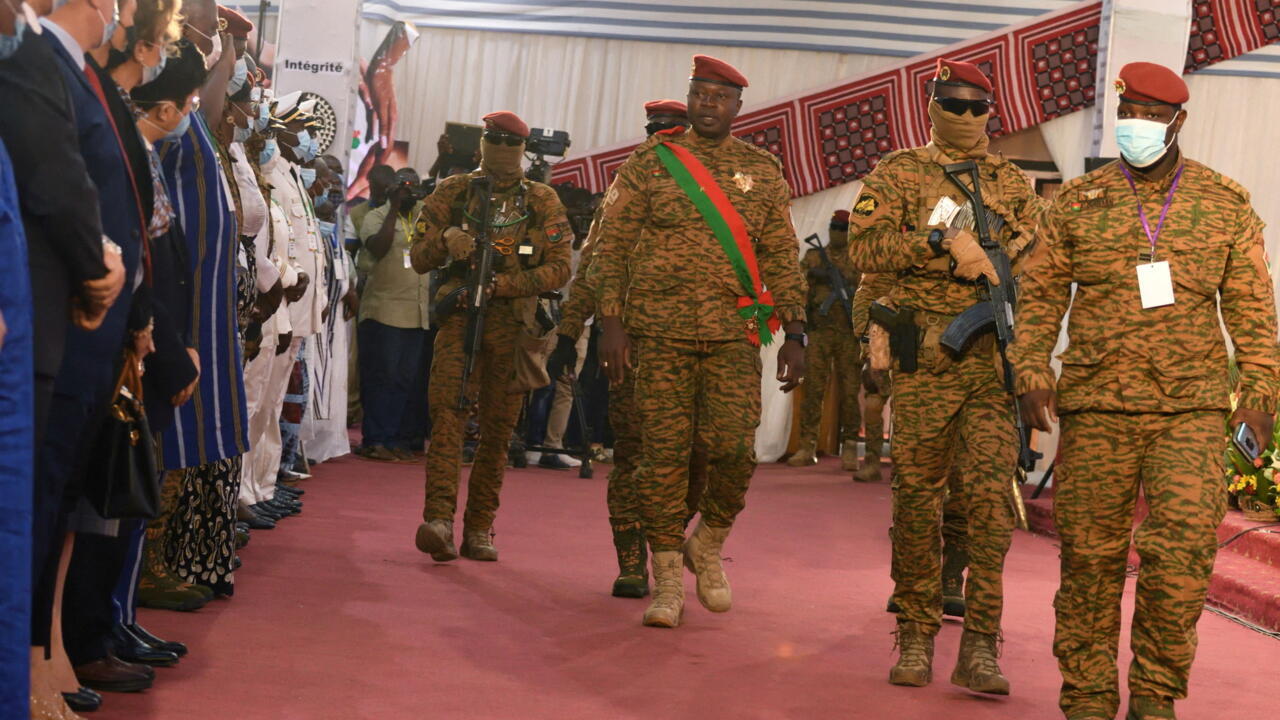
FILE PHOTO: Lieutenant Colonel Paul-Henri Damiba, who led Burkina Faso's military coup in January, arrives to be sworn in for a second time as president to lead a three-year transition after a national conference approved a transitional charter in Ouagadougou, Burkina Faso March 2, 2022. REUTERS/Anne Mimault/File Photo
The High Commissioner of Djelgodji Province, Wend-Néré Wilfried Tougma, has hosted an information and exchange session in Djibo to inform residents about the presidential initiative “Faso Mèbo,” aimed at strengthening civic engagement and local development.
The meeting, held on Monday, September 22, at the town hall of Djibo, provided a platform for the High Commissioner to explain the goals of the initiative and engage directly with community members.
According to Tougma, “Faso Mèbo” is led by the Presidency of Faso and seeks to involve citizens directly in nation-building through the training of young people and the creation of infrastructure tailored to local needs.
“The objective is to prepare young people for the challenges of tomorrow, by providing them with better access to practical training and promoting their integration into community development, while consolidating national values,” he explained.
The initiative is expected to contribute to job creation for both youth and adults, raise awareness and provide training on the country’s major issues, and reinforce social cohesion and national solidarity.
During the session, residents asked numerous questions, reflecting their keen interest and willingness to participate actively in the program.
The High Commissioner responded with detailed answers and praised the national enthusiasm surrounding “Faso Mèbo,” describing it as a decisive turning point for Burkina Faso’s development.
Tougma also highlighted the province’s contributions to the initiative, noting that on July 31, 2025, Djelgodji delivered 31 tons of cement to the Philippe Zinda Kaboré High School in Ouagadougou.
He emphasized that contributions are ongoing, demonstrating strong community support for the government’s vision of a renewed and developed Burkina Faso.
The session underlined the role of “Faso Mèbo” as a participatory program designed to integrate citizens, particularly the youth, into the country’s development process, while fostering a sense of shared responsibility and national progress.



